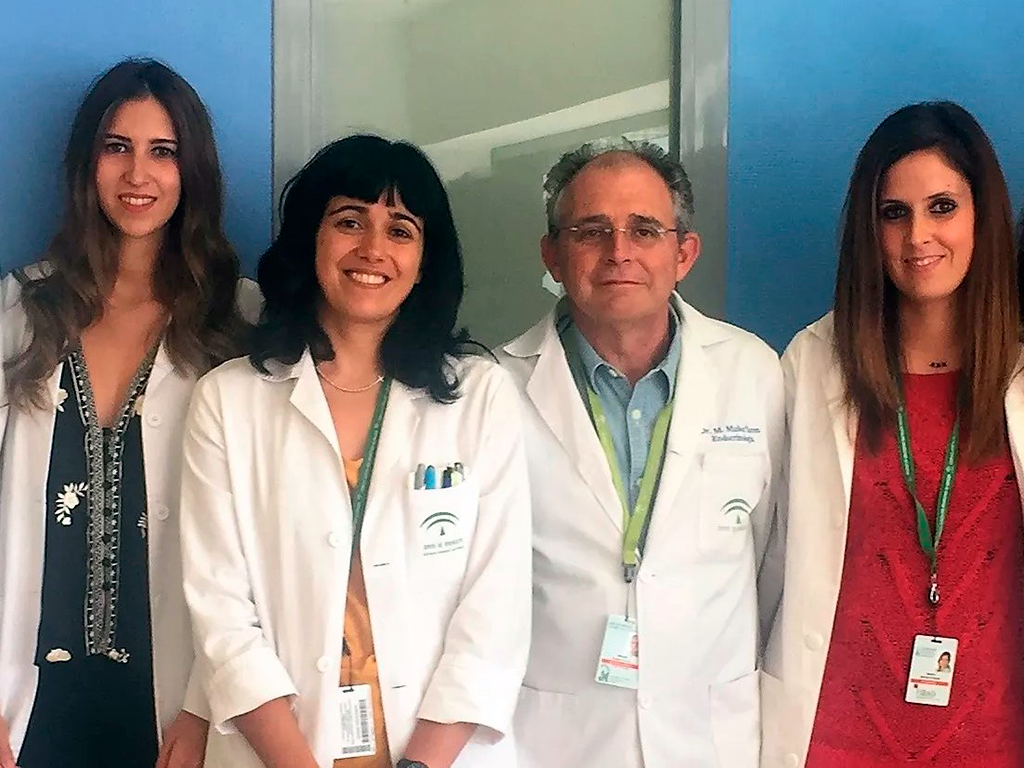They use bone proteins to predict the risk of cardiovascular disease in people with diabetes.

October 11, 2024
Researchers from ibs.GRANADA and UGR have discovered that the proteins sclerostin and periostin may play a key role in predicting cardiovascular events.
This finding facilitates more personalized and effective interventions in this high-risk group.
A study carried out by the MP20 research group on biomarkers of metabolic and bone diseases of the Biosanitary Research Institute of Granada (ibs.GRANADA), led by UGR Professor Manuel Muñoz Torres, revealed important results on the role of the proteins sclerostin and periostin in the body. Prediction of cardiovascular risk in patients with type 2 diabetes mellitus.
Cardiovascular disease is one of the leading causes of death in people with type 2 diabetes. Some proteins present in bone, such as sclerostin and periostin, have previously been linked to vascular health. This study evaluates whether these proteins may also be predictors of cardiovascular risk in patients with diabetes according to the SCORE2-Diabetes algorithm.
This algorithm was developed, validated and calibrated by the European Society of Cardiology to predict the 10-year risk of cardiovascular disease in people with type 2 diabetes by a team of scientists from UGR, ibs.GRANADA, Universitario Clínico San Cecilio de Granada. and CIBER of Failty and Healthy Aging (CIBERFES), owned by the Carlos III Health Institute, collected clinical data, biochemical measurements, and serum levels of sclerostin and periostin in patients with type 2 diabetes and showed that these bone proteins are involved in the risk of cardiovascular disease. , a discovery that helps more accurately predict cardiovascular events.
The study included 104 patients with type 2 diabetes (42 with low-moderate cardiovascular risk and 62 with high-very high risk according to the SCORE2-Diabetes algorithm) and showed significantly increased levels of sclerostin and periostin in patients with diabetes. type 2 and high to very high cardiovascular risk, establishing a possible link between these proteins and vascular risk. In addition, specific serum levels of sclerostin and periostin have been proposed as predictors of cardiovascular risk in diabetics.
In summary, the investigators of this work note the clinical significance of the results, which open new opportunities for the identification of innovative biomarkers of cardiovascular risk in patients with type 2 diabetes. The proteins sclerostin and periostin may play a key role in the prognosis of cardiovascular diseases. cardiovascular events, which will facilitate more personalized and effective interventions in this high-risk population.
The work was led by UGR Professor of Medicine Manuel Muñoz Torres, together with Professor Antonia García Martín of the Faculty of Medicine, also belonging to the group of endocrinologists at the Clinical University Hospital of San Cecilio. UGR researcher Sheila Gonzalez Salvatierra also took part. This study was funded by projects of the Junta of Andalusia, the Carlos III Institute of Health and the European Regional Development Fund, as well as the CIBER on Frailty and Healthy Aging (CIBERFES).
Bibliographic link:
Gonzalez-Salvatierra S, Garcia-Martin A, Garcia-Fontana B, Martinez-Heredia L, Garcia-Fontana S, Muñoz-Torres M. Bone proteins are associated with cardiovascular risk according to the SCORE2-Diabetes algorithm. Cardiovasc Diabetol. 2024;23:311.
https://cardiab.biomedcentral.com/articles/10.1186/s12933-024-02406-9#Sec2
